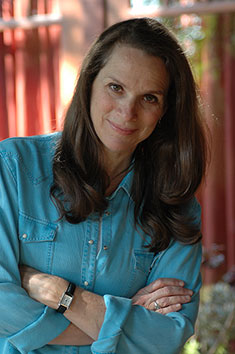Just when I thought the last vestige of life as I've loved it -- meaning life with an inviting bookstore nearby -- was ending, I found hope. First, there was the president in Iowa City, making front-page news because he was browsing in a bookstore. That photograph of him so cheered my Facebook friends, who posted it like crazy, that I wondered if something more was happening here than people clicking a button that said "like."
And then, amid the hoopla over iPads selling like hot cakes, I stumbled upon the opening of Pages: a Bookstore, a small, new independent in Manhattan Beach, of all places -- land of surfer dudes and beach volleyball goddesses and, as it turns out, a plethora of book clubs.
The local press heralded Pages as "a bookstore bucking the big-box bandwagon," and I wondered if its owners had been living in the Dark Ages, unaware that the death knell of independent bookstores had already been sounded. Or maybe they knew something the rest of us didn't?
From the closing of Duttons in Brentwood to Borders' announcement that it would be closing 200 stores and laying off 1,500 employees, sad scenes are being replicated everywhere: Bookstores that have served communities for years are shutting their doors for good. There are many reasons for Apoca-lit Now: the recession, rent increases and even apps that let you scan a book's bar code and find the cheapest price, which isn't going to be at the indie down the street. And that doesn't even include the steamrollering advent of the e-book, which outsold real books on Amazon last Christmas.
Still, it's anyone's guess exactly how old patterns of making, buying and reading books will be affected by all this change. Which is just the point, as it turns out, at Pages. "Anything could happen now," says Linda McLoughlin Figel, one of three co-owners of the new store. (She doesn't seem crazy when you meet her.)
The first thing you see when you walk into Pages, just past the free pot of Peet's coffee, is an old black Royal typewriter. The point, or at least the hope, is that old-fashioned doesn't necessarily have to mean outdated. Everything old can be new again. Pages has a plan. In order to succeed, its owners believe they'll need to provide a sort of mom-and-pop gathering spot for book groups to convene, for teens to share poetry at open-mike nights and for toddlers to have story time too. With comfy leather chairs and "shelf talkers" that offer book reviews from local readers, there is an immediate air of intimacy.
In other words, Pages is staking its future not just on dead-tree books but on our need for community, for having real contact in addition to the virtual kind.
At Skylight Books, Book Soup and Vromans, survival accompanies a palpable sense of place and community. At Village Books in the Palisades, there's a kids' pajama story time on Friday nights. In North Hollywood, the Iliad Bookshop provides personalized attention and a cat named Zola. Tens of thousands of Angelenos show up for the Los Angeles Times Book Festival. Here. In LaLa Land.
In our revved up, plugged-in world, having the chance to look someone squarely in the eye and share ideas may be the most bankable commodity of all.
"We're not naive," Figel told me. "This will be tough, but the community knows that too, and they're happy to have us here."
Judging by the paper decorations hanging in the front window, which were made by a cadre of local crafts people over coffee and bagels, and the fact that hundreds of locals showed up at the store's launch party, Figel and company may be onto something.
Even the sun-and-surf location could pay off. Manhattan Beach has been without a bookstore for several years. The iPad screen doesn't cut it in the glare on the beach, and do you really want to get sunscreen on your Kindle?
So I'm not despairing. The technological revolution that threatens to rival the revolution created by Gutenberg's printing press is a long way from eliminating bound books. (Even my teenage daughter tells me she'll only read books on paper.) And the human need to gather together isn't going to end, either. That has to mean the doors will surely stay open to at least a few clean, well-lighted, last best places. Long live the bookstore.
published in the Los Angeles Times



